Europe & Central Asia
2013
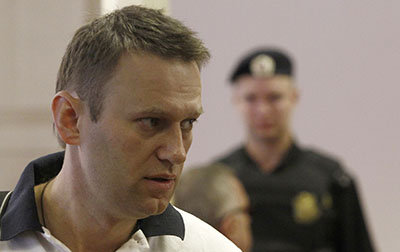
The targeting of Russian blogger Aleksei Navalny
The trial of Aleksei Navalny is coming to an end at the Leninsky District Court in the river city of Kirov, 500 miles northeast of Moscow. Navalny, a charismatic 37-year-old lawyer, was propelled to fame through his activities as an anti-corruption blogger, activist, and a leader of Russia’s opposition movement. Most recently, he pledged to…
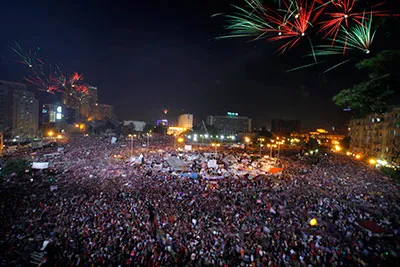
Attacks in Egypt highlight risk of covering protests
From São Paulo to Istanbul to Cairo, coverage of street demonstrations has re-emerged as an exceptionally dangerous assignment for journalists. Since June 1, CPJ has documented more than 120 attacks on the press amid the civil unrest in Brazil, Turkey, and Egypt–the biggest surge of attacks in such circumstances since the uprisings that swept the Arab world…
In Barroso-Aliyev talks, press freedom takes a back seat
“We in Europe are also not perfect,” José Manuel Barroso said last week while hosting a joint press conference in Brussels with Azerbaijan’s head of state, Ilham Aliyev. The president of the European Commission, who is supposed to defend the EU’s democratic values, seemed to prove his own point by deciding not to openly question…
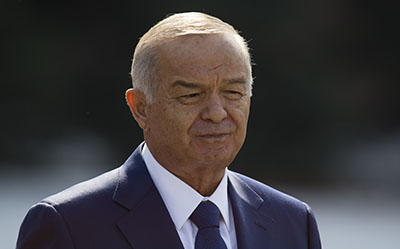
Karimov should uphold media pledge by freeing journalists
New York, June 27, 2013–Uzbek President Islam Karimov should follow through on his public commitment today to support his country’s journalists by releasing the unjustly jailed reporter Salidzhon Abdurakhmanov immediately, the Committee to Protect Journalists said today. News accounts have reported that the health of Abdurakhmanov, who has been imprisoned since 2008, has deteriorated in…
In Russia, Internet censorship ‘on a whim’
New York, June 26, 2013–Prosecution and court authorities in the central Russian city of Ulyanovsk should act immediately to rescind an order that blocks public access to an independent news site, among several others, in a case notably lacking in evidence, legal basis, and fair play, the Committee to Protect Journalists said today.
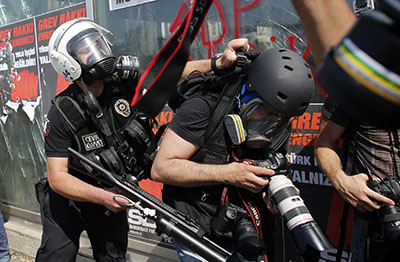
Danger on Turkey’s streets: Reporting on the civil unrest
It all changed so swiftly. The demand and price of gas masks, protective eyewear, and helmets rocketed in Istanbul. Not only protestors, but journalists, too, contributed to the rush. Hardware store clerks were quick studies, explaining to journalists which masks offer you a better line of sight when taking pictures, and describing the problem of…
Turkish mayor harasses BBC journalist on Twitter
New York, June 24, 2013–The Committee to Protect Journalists condemns a spurious and inflammatory Twitter campaign begun Sunday by Ankara Mayor Melih Gökçek against a local BBC reporter. Gökçek labeled BBC reporter Selin Girit as a traitor and a spy in apparent disagreement with the BBC’s coverage of anti-government protests that have swept the country.

Snowden travels trace a path of government hypocrisy
Edward Snowden’s global travels have highlighted the chasm between the political posturing and actual practices of governments when it comes to free expression. As is well known now, the former government contractor’s leaks exposed the widespread phone and digital surveillance being conducted by the U.S. National Security Agency, practices at odds with the Obama administration’s…
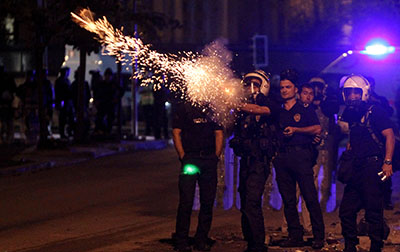
In crackdown on dissent, Turkey detains press, raids outlet
Istanbul, June 20, 2013–Two journalists were detained and one newsroom raided this week as Turkish authorities continued a broad crackdown on dissent, according to news reports. The Committee to Protect Journalists calls on the government to halt its obstruction of journalists seeking to cover the protests that have swept the nation.
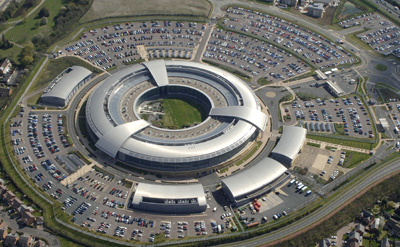
In Woolwich aftermath, UK revives ‘snooper’s charter’
Key elements of the British Communications Data Bill, known as the “snooper’s charter” by its critics, have returned to the political agenda in the month since two suspected jihadis fatally stabbed Lee Rigby, a 23-year-old soldier, in London’s southeast Woolwich district. The bill, which would have given police and security services greater ability to monitor…